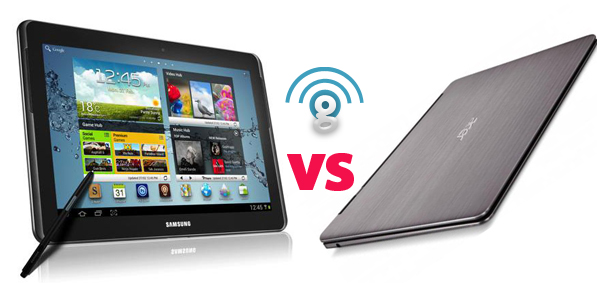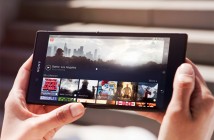
The personal computers industry has been stalling for a while before Apple released the iPad and pronounced it the next big thing in computing. While no one really believed them back then, today it is clear that the company was right – tablets are quickly overtaking desktop PCs and laptops in sales and overall use, which is especially helped by the fact that people spend most of their time on the Web instead of using various programs (which is also not really a problem anymore, since mobile apps are just as good as desktop ones in most cases).
But there’s one company that has a few issues with this next wave of computing, or more specifically, the fact that most tablets use ARM processors – Intel, who’s dominating the x86 processor industry, and they’re not about to let the newcomers take over their share of the market.
Tablets running on x86 processors are actually not that uncommon, but they all suffer from short battery life, bulky size and the OS and apps available for the platform, which are optimized for desktops, laptops and other non-touch devices. Intel’s first answer to the iPad and the many Android tablets was the Ultrabook format – a push to make laptops ultra slim and light, with a long battery life, as well as affordable for everyone.
Obviously, this strategy differs quite a lot from tablets, but nevertheless, the two devices overlap in purpose and functionality, and with more and more people thinking about getting tablets as their main computer for home or work, it’s interesting to see whether Intel’s format is a better alternative to both tablets AND laptops.
Tablets are great for a lot of tasks, including email, Web browsing, watching videos and listening to music, playing games, editing documents and more. However, there are some limitations, which are especially crippling for power users, and this is where Ultrabooks are better. Thanks to the long history of the x86 architecture, there are a lot of great programs for the platform. Most of the professional tools like Photoshop and any 3D rendering apps are still only available for x86 processors and their ARM counterparts are basic at most.
While Ultrabooks are bigger than tablets (at 13.3 vs 10.1 inches standard size), they are still very thin and light – enough to be carried in a bag without really noticing them, and if you need an ultra-portable computer for work, you’ll most likely have to consider getting a keyboard and USB hub at the very least for a tablet – things which an Ultrabook has built in.
The performance of Ultrabooks is also much better than that of tablets thanks to Intel’s processors, which are much faster than their ARM counterparts, even though they’re still trailing them in battery life. Interestingly enough, with Ultrabooks being slightly larger, it’s possible to make them last almost as long as a tablet – something which manufacturers have already done, with most Ultrabooks being rated at more than 6 hours of use, even with a data connection constantly enabled.
While an iPad or Android tablet is great if you’re mostly using the browser, listening to music, editing some documents and sending email, you’ll definitely want to take another look at an Ultrabook if you find yourself needing extra accessories like a keyboard, more storage space, a dock and other things for your tablet – most Ultrabooks have all that and more built-in, so they’re ready for any kind of work out of the box. Intel definitely has carved a nice little niche for themselves here, and if Ultrabooks become as cheap as a high end tablet, the choice may be quite hard, indeed.
If you really like the tablet format, but still don’t want to be limited by the ARM processors, the next best thing to do is wait for the new touch-enabled Ultrabooks (yes, they’re coming) or the Intel Atom-powered Windows 8 tablets, which are the perfect middle ground between a tablet and an Ultrabook.



